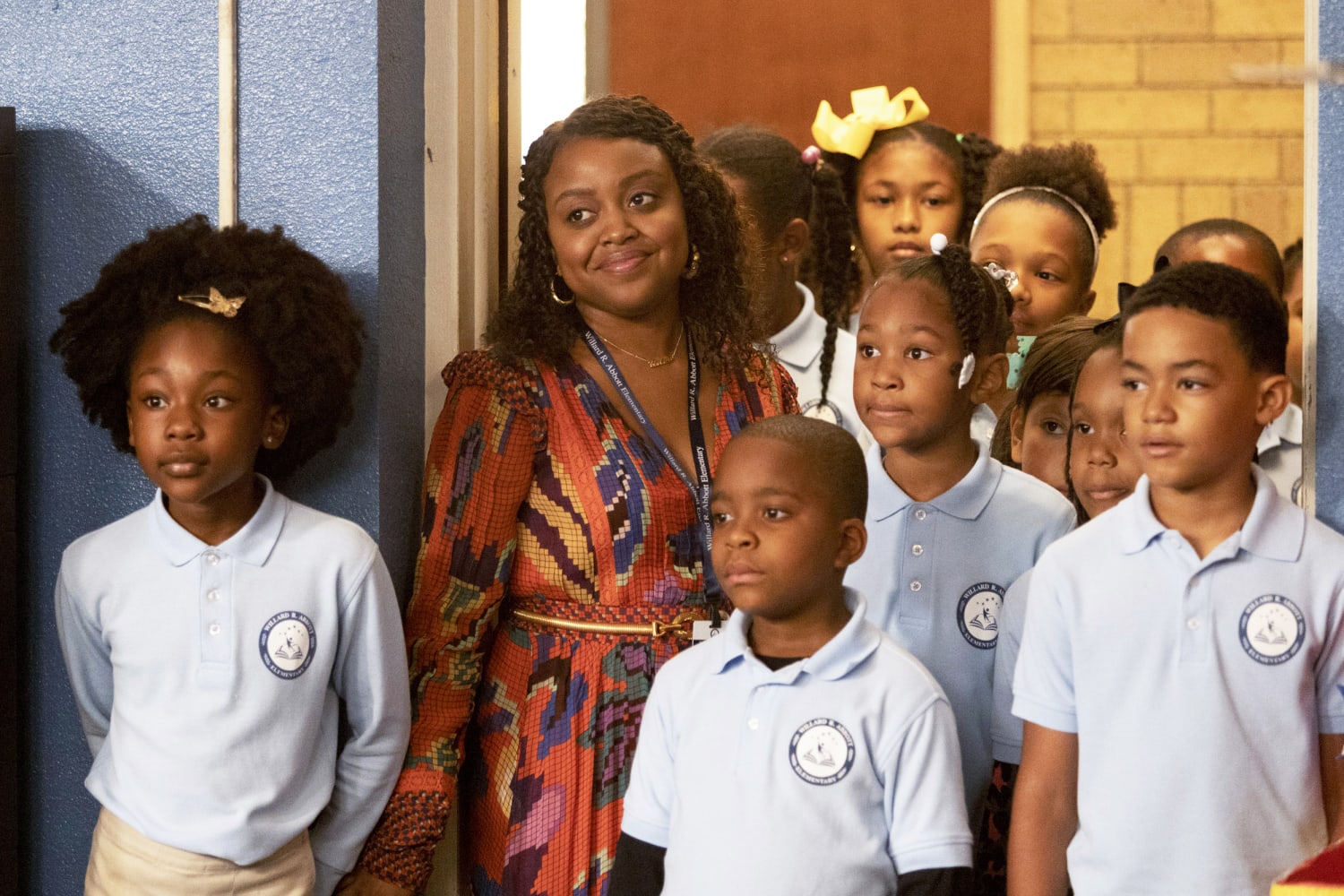
ABC’s new hit show “Abbott Elementary” sends Twitter abuzz every week as fans rush to express their gratitude for the way it highlights issues in education, gives viewers plenty of laughs and guarantees a touching moment or two along the way. It seems the series has yet to be canceled or renewed for a second season. However, given the splash it’s made in popular culture, a second season seems like too good of a chance to miss.
The first episode revolves around second grade teacher Janine Teagues — the main character played by show creator Quinta Brunson — and her battle to get increased funding for her classroom. She faces countless obstacles: a goofy, slightly narcissistic principal; a never-ending line of red-tape bureaucracy; and her own bubbling impatience for how slow change happens, which at times exasperates even her fellow teachers.
A school is not a new or glamorous setting, but mockumentaries allow us to take the familiar and see it in a new way.
This sets the tone for the first season of the vastly successful new comedy, which has gained record-high viewing numbers and critical acclaim. The show has earned nods from several reviewers for its equal parts funny and earnest dialogue and its eagerness to grapple with the issues of teaching at an underfunded school. But what underlines the show most is the zesty, youthful energy of the young teachers, the wise maturity of the more experienced ones and the deliberate way the show consistently takes mundane situations and extracts the hidden humor from them.
“Abbott Elementary” follows in the footsteps of several great mockumentaries. Shows like “The Office” have become staples of popular culture, noted for their long runs on television and award-winning writing and acting. It’s been a moment since we have had a mockumentary with the potential to rival its iconic predecessors. “Abbott Elementary” is just the show to do it.
Using the signature toolkits of hit successes like “The Office” and “Parks and Recreation,” it introduces itself with the sense of sarcasm and wit the mockumentary genre is famous for. Early on, we learn that Principal Ava Coleman (Janelle James) has invited a camera crew to show what it’s like at an underfunded public school in America (and to get herself as much camera time as possible). The show features interviews given directly to the camera, tactful zoom-ins and playful pans to character reactions. Every episode features built-in commentary from the cast, showing the inner dialogue of each character and bringing the unacknowledged world of teaching to the forefront.
This mockumentary style allows the emotional moments to hit harder, making the fictional feel real. In the season premiere, Janine explains the bleak scenario of funding at her school after disaster strikes in the form of a student peeing on the storytime rug. (The toilets at the school don’t work, so the student decided to improvise.)
She wants a new rug, but that’s a luxury — as the other teachers are quick to point out — when the most basic supplies are a precious commodity. In an interview, Janine explains that the loss of the rug is a disaster since sitting at the rug during storytime isessentially a “Xanax for kids.”It’s just a funny line until later in the episode when she expands even more: The rug is where one of her students from an unstable home naps during lunch break because it’s “softer than his bed at home.”
Moments like these — monologues delivered straight to the camera and small character interactions in the lunchroom — give a special texture to the show and add a fun bit of drama to the everyday settings they portray. A school is not a new or glamorous setting, but mockumentaries allow us to take the familiar and see it in a new way. They take ordinary settings and give us built-in reflection and commentary. This provides plenty of entertainment for viewers watching Janine and her co-workers as they engage in their daily misadventures.
The mockumentary style also allows for thoughtful analysis of underfunded schools. The setting of a Philadelphia school acts as a stage for conflicts between teachers, whether on their way to class or over coffee in the hallway, around politics and teaching style. The one-on-one interviews give the audience a chance to see the extra work that goes into teaching — without the support of a district. It requires resourcefulness, dedication and extra energy. The series provides a look beyond the statistics about the lack of funding in education and puts faces to the issue.
Just as “The Office” and “Parks and Recreation” gave a new spin on office culture, “Abbott Elementary” is doing the same for schools. After hearing the after-school discussions between teachers and the brainstorming sessions in morning assemblies, viewers feel that they’ve seen America’s public schools in a whole new way. The show’s realistic touches among silly plotlines pack a punch that allows for real humor and heartfelt emotion.
Source: | This article originally belongs to Nbcnews.com










